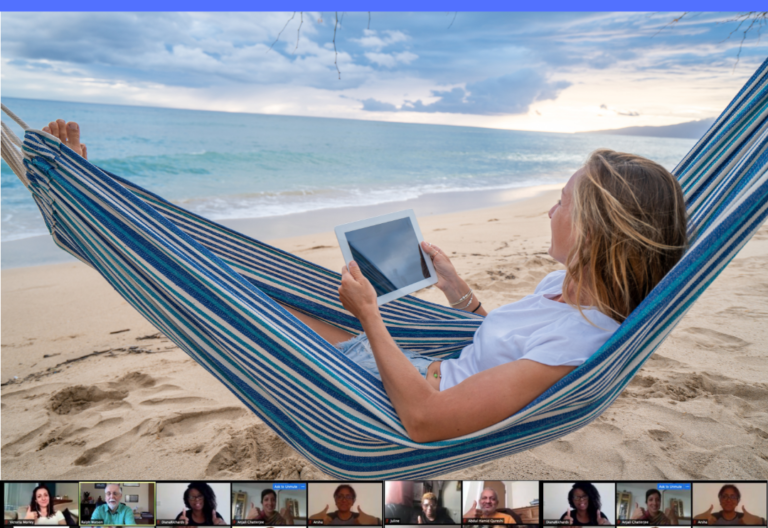Let’s be honest: as a coach, you’ve probably encountered those well-meaning requests. A friend of a friend wants to “pick your brain” about their career change. A distant cousin asks for some quick advice on their relationship troubles. You genuinely want to help, but a part of you bristles at the casual assumption that your valuable expertise should be handed out for free.
The “freebie trap” is a pervasive challenge, particularly for coaches early in their careers. The desire to gain experience, attract potential clients, and simply be of service can tempt us to undervalue our time and knowledge. Yet, consistently coaching for free isn’t just unsustainable– it can actively undermine your credibility and the long-term success of your business.
Let’s unpack the reasons why stepping away from the “freebie trap” is both essential and incredibly empowering in your coaching journey.
Why Charging For Your Time Matters
- Valuing Your Worth: When you offer your coaching skills for free, you inadvertently send a message – to yourself and others – that your expertise isn’t worth paying for. Charging fair prices signals that you deeply value the transformation you can offer and respect your own time and investment.
- Attracting Committed Clients: Those willing to invest financially in coaching are generally more invested in the process itself. Free sessions can attract ‘dabblers’ lacking the seriousness needed for true breakthrough.
- Sustainability as a Business: Let’s be practical: coaching is your livelihood. Giving away your most valuable resource– your time– isn’t a viable long-term business model. Sustainable pricing is essential for growth and avoiding burnout.
- The Energy Exchange: There’s an energetic difference when a client has ‘skin in the game.’ Payment creates a sense of partnership. Coaching becomes a mutual investment in their growth, and results are often amplified.
The “Just a Quick Question” Conundrum
Sometimes, the “freebie trap” is disguised as innocent requests – a short phone call, a few emails with advice. Yet, these seemingly small time commitments can quickly add up, eating away at your availability for paying clients and blurring the lines of professionalism.
Here’s how to politely but firmly redirect these well-intentioned requests:
- Be Gracious, Yet Clear: “I truly appreciate you reaching out! To give your situation the full attention it deserves, I invite you to book a paid discovery session where we can dive deeper.”
- Offer a Paid Alternative: “I’m currently not offering free consultations, but I do have a mini-coaching package specifically designed for [common client pain point]. Would you like more information?”
- Boundaries with Friends & Family: “I love you, and I want to be supportive, but to honor my coaching practice, let’s schedule a proper session so I can give you my full focus.”
But What About Gaining Experience?
New coaches face a unique challenge. Gaining real-client experience is vital, but how do you do so without endless free sessions? Here are a few alternatives:
- Pro-Bono with Stipulations: Offer a limited number of pro-bono clients in exchange for detailed testimonials and permission to use their success stories (anonymously, if they prefer). This serves as both experience and social proof.
- Beta Pricing: Be transparent about being early in your career. Offer a significantly discounted rate for a select few clients, positioning it as an opportunity for them to get high-value coaching at a lower price point.
- Focus on Specific Niches: Newbie coaches often benefit from niching down early. This allows you to quickly become the ‘go-to’ expert in a specific area, making clients more willing to invest.
Redefining “Free” for Your Coaching Business
Let’s not paint “free” as the enemy. Offering strategic freebies builds your audience and showcases your expertise. The key is in being intentional and ensuring those free offerings funnel potential clients into your paid services.
Think of your freebies as appetisers, not the full meal. Examples might include:
- Compelling Newsletter: Packed with actionable tips that build trust and establish your unique approach to coaching.
- Mini-Webinar or Training: Offering valuable knowledge on a niche topic positions you as an authority and attracts the right clients.
- The Irresistible Lead Magnet: An in-depth guide, workbook, or transformative exercise tied to your ideal client’s struggles. In exchange for their email, you start nurturing a warm audience.
If you’re ready to overcome your limiting beliefs and become a successful coach, I encourage you to attend one of our 1-Day Coaching Diplomas to start your coaching journey. For those who want more speaking support, here is the link to our speaking training. It’ll help you to develop a plan to achieve your goals and build a successful coaching business. You can also find our beginners guide to becoming a coach here.



